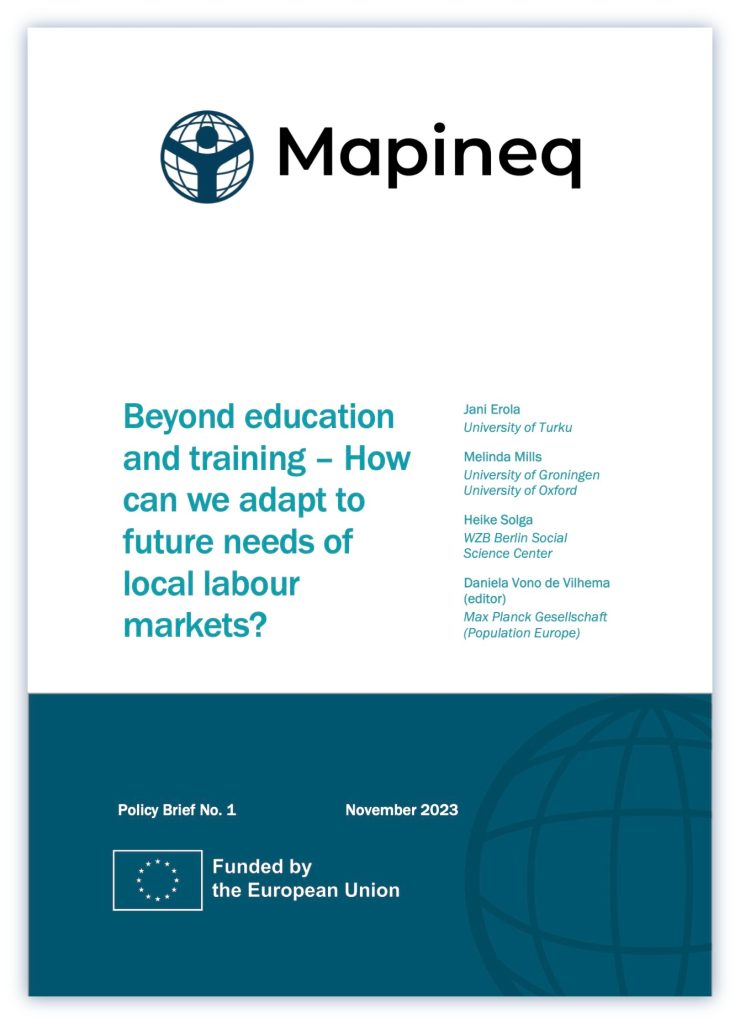Beyond education and training – How can we adapt to future needs of local labour markets?
In her 2023 State of the Union Address, European Commission’s President Ursula von der Leyen mentioned: “I see three major economic challenges for our industry in the year ahead: labour and skills shortages, inflation, and making business easier for our companies”. This Policy Brief relates to the first challenge: labour and skills shortages. What aspects of education and skills development can be improved, considering the current and future needs of local labour markets? In September 2023, Mapineq brought together an interdisciplinary group of experts to discuss best practices and adaptations that are needed to fulfil current and future needs of European labour markets.
By Jani Erola, Melinda Mills and Heike Solga.
Editor: Daniela Vono de Vilhena.

Investments in skills alone are insufficient for reintegrating low-qualified individuals into education or the labour market

Substantial policy reforms to improve salaries, job security, and working arrangements are necessary to overcome labour force shortages

Adult education and training opportunities need to become more flexible to boost participation and inclusiveness

Staff training in organisations should be seen as an investment and not a cost for accounting purposes

